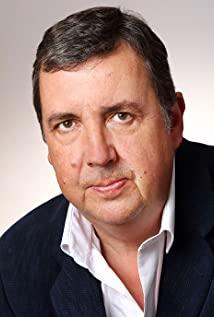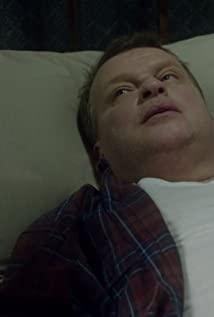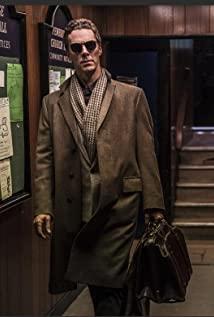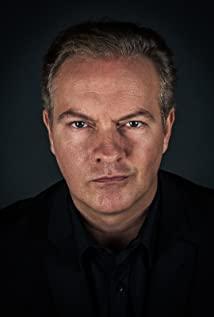This is probably the one with the longest name in the British dramas I've ever watched---- but it matches the face of Cun Fu, lol
This play is adapted from five autobiographical novels by the original author, Edward St. Aubin. There are five episodes in total, and each episode is one hour long. It belongs to a very small British drama. The screenwriter is very skilled, but it is estimated that people who can understand or even appreciate it Not many, I found this drama just because of Benny. I heard that this drama can be regarded as Benny's special solo show, and the acting skills are in full bloom. As a Benny's volume fan, how can I miss it.
The five-hour drama, I watched it in one breath, and the feeling after watching it... It's really...
Online comments are honestly not deceiving. If the biggest purpose of watching this drama is to watch Benny, it is totally worth it. But if you watch this drama to see the storyline, many people may be confused.
However, since this is a loosely structured thriller story involving a large number of characters' psychological activities, I personally think that the ability to write and direct the original book to this level can be regarded as a masterpiece, and the adaptation is quite good. Suppose I give this drama five stars, Benny's Acting and screenwriting skills can each account for two and a half stars.
The five parts correspond to the five books of the original work: "Bad News", "Forget it", "Hope", "Breast Milk" and "Finally". The order of the script and the original book is slightly reversed. The first episode "Bad News" is actually the second book, and the second episode "Forget it" is the first book. After watching it, I think this reversal is very reasonable, which increases the suspense of watching the show, and at the same time perfectly captures the attention of fans with Benny's superb acting skills. With the concentrated bombing of Benny's one-man show in the first episode of "Bad News", the slightly bland and normal interpretation of the next four episodes is like the aftertaste after heavy drinking, which is long and far-reaching.
Benny is my favorite actor at the moment, there is no one... A lot of times I just like a certain role played by the actor, and it has nothing to do with the actor himself, only Benny, I like him because he is indeed one of our times. Great actor.
Why use the word "great" to describe it? Just look at his performance in this Patrick Melrose quintet, and you'll know.
Routine spoiler: The show is based on an autobiographical novel, which means that the original author is the prototype of the play's protagonist, Patrick Melrose. From the name of the original author, it can be seen that he inherited the surname of the upper-class aristocracy in the United Kingdom and belonged to the top-class society of that era. Unfortunately, he met a pair of extremely terrible parents and was abused from the age of 5. In the first half of his life, which was chaotic and collapsed, he was on the verge of death several times. It was not until his parents died that he broke free from the shackles of his soul and worked hard to get a new life... I won't write more details. The horror of the original family is in this drama. It was almost performed to the extreme, how to imagine the kind of parents who gave birth to a child just to hurt him? No wonder the phrase "parents love their children" is the number one lie in the world.
The original novel is much darker than the TV series, and it is difficult to infer whether the protagonist is redeemed in the end, but the TV series still gave a relatively bright ending. Melrose, in his forties, finally decided to get rid of the nightmare of his past life and move towards being able to love others. The future that is also loved by others, may he be happy in the future.
I read on the Internet that the original novel ends with this sentence: "When he (Patrick) stopped taking his life so personal, the heavy and impenetrable silence became a kind of complete transparency. The silence. In that clear sky, he saw a ray of freedom."
I think I can understand the author's inner feelings: extreme pain is essentially the ultimate personal feeling, but the meaning of self-help is not to be immersed in the extreme personal feeling, but to open your eyes and see your own pain The outside world is irrelevant, contact people who have nothing to do with your pain, stay away from personal pain, then the pain may gradually fade away.
Note: it fades, not disappears. The imprint of pain will always be there, but it tends to be diluted and transparent. It will no longer be able to dominate the hearts of the sufferers, and the sense of being imprisoned in the flesh will also be loosened.
The heavy and impenetrable silent pain is actually a visible confinement to the physical body. If you are immersed in such pain, you will either go crazy and hurt others, or collapse and hurt yourself.
The protagonist of the show, Patrick Melrose, has been hurting himself for the first half of his life in captivity. This show doesn't have any real horror scenes, but it's terrifying when you look closely. The only child of a wealthy family composed of a British aristocratic man and an American nouveau riche woman fell into the well of hell ignorantly as soon as she was born. . He suffered huge damage and betrayal when he was too weak, and he could not retaliate against his parents for hurting him all his life, so he had to try his best to live with himself.
Denying your parents is actually denying yourself completely, right? Your source is so dirty and meaningless, so why do you still exist in this world?
The matter of reincarnation is really a technical job. When you crash into a native family that doesn't take the child's feelings seriously, the childish mind will feel that the whole world is illogical, and it will fall into a darkness that can't be freed from it for a lifetime.
Sometimes I think that so many descriptions of gods in human literature works are simply the feelings of parents in childish childhood, right? The traces of the childhood when it is difficult to form a complete memory, the unpredictable, moody parents and the punishment logic of "I made you suffer for your own good", the experience brought to the child, and the human speculation about the gods How similar? Immediately after birth, infants and young children don’t understand anything, but they have a subconscious mentality that believes that those who raise them will protect them. Under this premise, when they are inexplicably hurt, how should children understand?
Many parents feel that: when the child grows up, it will be understood.
The truth is actually: when the child grows up, becomes stronger, and the wound fades and becomes transparent, forget it.
Education and harm are two different things. For the good of children, there is nothing wrong with strict education, but to harm children in the name of strict education is pure bullying showing hegemony. Like Melrose's father in the movie, he sexually assaulted his 5 year old son and said "if you can go through this pain, there's nothing you can't take anymore"...this is what I see to describe the hurt as It is the most shameless evasion of love.
It's a pity that, although not to the level of acting in the play, in terms of daily life, it seems that many parents also believe in this logic, and they are still complacent, thinking that in the future, their children will be safe from poison, because they have already I gave the child enough hurt lessons in advance. Please, the child finally just learned not to believe even his own parents in this world, and then took this dilute and transparent wound all his life to make a living in the world.
Off topic, say a little more about what is strict and what is hurt: strict means sticking to the principle and not tolerant of mistakes, but the expression of strictness lies only in perseverance. If the harsh expression involves causing the other person to feel great pain, it is hurt. Parents who educate their children, no matter how correct the reasoning, no matter how lofty the goal they want to achieve, but the result is that the child feels great pain, then there is no doubt that this is harm.
Even if the injured child understands the truth or achieves the purpose that the parents want, the wound cannot be erased. Sadly, many parents don't care that their children have wounds, because the parents themselves are scarred, and even feel that it is not normal for their children to have no wounds. Children with wounds will become the same parents unknowingly when they grow up, and then pass it on from generation to generation. this way of education. I don't know, when will everyone be able to save the pain: a wound is a wound, and it is difficult for a person not to be injured in his life, but in any case, it is not up to parents to hurt their children.
On the surface, it seems that children who grow up with injuries may really become very strong, but I don't understand what parents are proud of... Because of the heavy trauma parents have caused to children, the wounds will be engraved in the depths of their souls. The child not only remembers the physical pain, but also the mental trauma. Even the biological parents have the heart to cause him such great pain, so who else can he trust? Conversely, as a parent, working hard to give birth to a child is to make him understand that no one in this world can be trusted unconditionally, no one will love this child deeply, and this child will not love anyone deeply, then even if he is raised What's the point of the child being able to call the wind and call the rain in a world that no one loves?
What is even more pitiful is that the child may not be able to take the initiative to get rid of his parents who caused him great pain, just like Melrose in the play, standing in front of the coffin of his father's death, hating him while still feeling indescribable sadness, After many years, he still feels tender, and he is even more dedicated to his mother who left him alone. After being deprived of his inheritance, he arranged for her to be euthanized according to her instructions, only to be put by her unrepentant mother... A naturally close relationship is full of extremely strong distrust. This kind of contradiction cannot be escaped. Will it drive people crazy?
I still hope to raise a simple child who can at least unconditionally trust his parents. I will not use my active harm to him to make him alert to anyone and anything. The lessons he should learn, let him go to the society and learn it well. . (Disclaimer: This has nothing to do with doting. Doting means never letting children be exposed to the ups and downs of society. It is a kind of reverse love that can harm it.)
When Melrose told his friends about his painful memories in the play, he cried bitterly: "No one should treat another person like this." Yes, parents and children are both human beings, not because the children are still young and ignorant, In need of feeding and teaching, he is not alone. The so-called treating others as human beings means caring about the feelings of others. Of course, the degree of care varies from person to person, but no one should go to this level too much, especially when parents treat their children like this, and there is nothing that can be tolerated. place.
But Melrose's godfather obviously doesn't think so. He thinks that Melrose can grow so big and so good, it is almost his father's great achievement, Melrose does not remember and miss his father, that is ungrateful... Bah, Fortunately, the old man died at Melrose's mother's funeral, giving Melrose a way out.
What else can I do? Just forget it.
Just like people cannot take revenge on the gods, a child can't take revenge on his parents, let alone convince those outsiders who think his parents are excellent and compassionate.
However, after forgetting it, Melrose would still be confused in his heart? why me? Why am I experiencing this? Is there anything wrong with me?
Uh, maybe there really is something wrong, the reincarnation was wrong.
I have always had the idea that death and life are the same thing, the process of death is the process of birth, and what death can't take away, life can't bring. So everyone should take a good look at themselves, what is it that they are born with? The purpose of self-examination is to gain experience that can be used in this life: what cannot be brought by birth means that it cannot be taken away by death. Wouldn't that be another trip to the world for nothing?
Therefore, the Buddha said that reincarnation is suffering, and death is by no means liberation, but like Sisyphus rolling down a rock after pushing a rock up a mountain.
Various religions say suicide is stupid. From this point of view, it is true. In this life, if you rush to death before you think about it carefully, you obviously have no chance to practice skills, and you waste your life that can be used to understand the rules. I always feel that God is untrustworthy. There is no God in this world, but everyone is born in a world with rules. In my opinion, life experience should be mainly used to understand the rules. It's hard to say which well you will fall into in your next life.
Of course, there is another saying, foolish people have stupid blessings, they are confused and enjoy the happiness in this life, maybe they will continue to enjoy happiness in the next life, the rules of reincarnation are too complicated, no one can say clearly .
It's just that this mode of confusion doesn't apply to Patrick Melrose, who has obviously cast the wrong tire.
In this play, Patrick Melrose began to want to kill himself when he was 5 years old, and he did not die until he was in his 40s. It is a rare Sisyphus-type survivor. See the end At the time, I even sighed that no matter whether he really thought about it or not, I hoped that he would not waste the rest of his life, otherwise it would be too much to live up to his survival.
The five-part creation method is very unique. Forty years of tragic life are condensed into five scenes to show: "Bad News" is a few days when 22-year-old Melrose rushes to New York to deal with the unexpected death of his father. Day (by the way, this episode is really a feast for Benny fans to appreciate his acting skills); "Forget it" is the summer in the south of France where Melrose was sexually assaulted by his father for the first time as a child; "Hope" " is the hypocritical birthday party of the British nobles who made Melrose decide to reinvigorate their lives eight years after his father's death; "Breast Milk" is the holiday when his mother called Melrose back to the manor and stripped him of his inheritance as if nothing had happened; "Finally" It was the funeral after the death of her mother, and Melrose was freed from the shackles.
I've seen some comments online that Melrose's mother is more hateful than her father, but I'd say it's just because the person in the protector position happens to be a weak one too. One cannot rely on the weak for protection, "being a mother is strong" does not apply to all mothers, not to mention that Melrose's mother happens to be an extremely weak person, she will only run away, Melrose is her sacrifice to her tyrant husband . In the play, Melrose couldn't figure out why his mother knew the truth but didn't save him, but in the end, when the wound became transparent because of time, he finally understood that it was useless to blame the incompetent.
Everyone thinks that incompetence is the easiest to blame, but the most meaningless thing is to blame others for incompetence.
No one who is truly incompetent will become competent because of constant accusations... If you find that others have become competent after you have scolded others, it is only because others are capable in the first place, and they know how to make progress. It's okay to scold, don't be selfish.
People who are truly incompetent, the more they are criticized, the more incompetent they will become. They do not understand their own progress, and they will only escape, fleeing into the field of admitting their incompetence, completely abandoning and deviating from the responsibility that requires their own strength to bear, incompetent people. Will sincerely say "I have no choice, I am also a victim", and then just take care of yourself with peace of mind.
Melrose's mother is such a person. When Melrose, in her forties, finally summoned the courage to tell her mother that she had been raped by her father in this mansion in the south of France, her mother's answer was actually two English words. : "Me too"... Melrose's expression at that time (or Benny's performance) was beyond words.
There is no need to confide your sufferings to the incompetent weak, because she can't even empathize and empathize, and she will not feel sorry for you, she will only think of her own pain. Oh, of course Melrose's mother was in pain. Her pain was so heavy that she completely left her own son behind, after all, half of this son was from the tyrant.
Psychology says that parents should not blame each other in front of their children, because children will feel that no matter who is wrong, it means they are wrong. So how could Melrose not collapse? Both his parents were terribly wrong, and he himself was the product of such a union, why did he come into this world?
I had no choice but to take drugs, I had to drink alcohol, I had to do everything possible to destroy myself... but I was not willing, why? My father did what he wanted all his life, without repenting and never committing suicide; his mother escaped and tossed all his life, without self-blame nor suicide; then why should all the leaked shit of life be poured on Melrose, making him Unbearable to commit suicide?
Probably, because of this unwillingness, Melrose did not die in the end. After all, he still wants to understand that he can only save himself, don't ask why, don't worry about how the person who should protect himself is the one who hurts him, don't expect others to save him, don't wait for an answer to let him restart.
Just at this moment, save yourself, stand up, go out the door, go to the light.
Maybe there will be twists and turns, but it doesn't matter, being able to survive this bag of feces and observe your transparent wounds in the sun is at least the beginning of redemption, right? The original author, Edward St. Aubin, chose to write this terrifying story to the public, also to save himself?
Fortunately, the life of suffering may be very long. I hope that Patrick Melrose can cherish this long life and find a less bad reincarnation place for his next reincarnation.
View more about Patrick Melrose reviews











